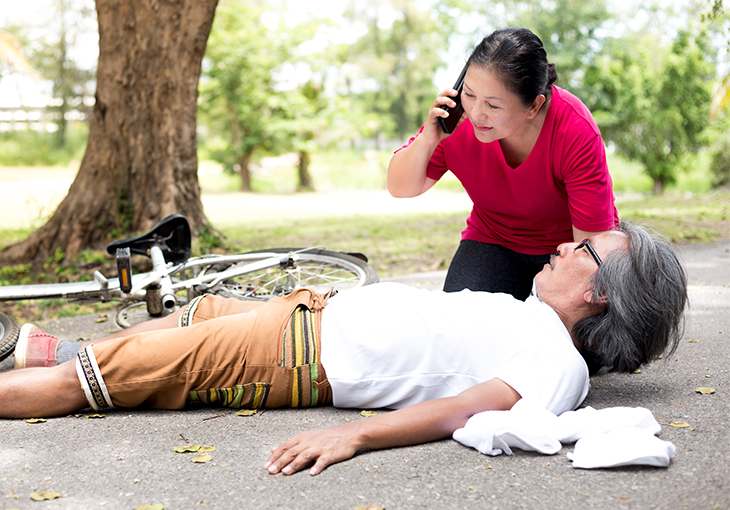During CPR & AED Awareness Week, June 1-7, the American Heart Association is asking advocates in Massachusetts to focus their efforts on one of our key issues – requiring all 911 operators in Massachusetts to be trained in how to deliver CPR instructions over the phone.
We have created a Telephone CPR Toolkit that will help you build a campaign to advocate for this issue.
Click hereto download our Telephone CPR Toolkit.
If you call 911 in Massachusetts because someone is in cardiac arrest, there’s a good chance the dispatcher you reach will not able to give you CPR instructions over the phone.
Here’s why: In some Massachusetts communities, when you call 911, you’ll reach the Massachusetts State Police. They’re not trained in delivering CPR instructions over the phone. To make matters worse, your call could then be transferred to your local police/fire dispatcher, who are also not trained in telephone CPR.
It’s not until your call is transferred a second time – to an emergency medical dispatcher –that you’ll receive CPR instructions. By that point, it could be too late.
Fortunately, Massachusetts lawmakers have an opportunity to address this problem and save lives. Legislation being considered by state lawmakers (House Bill 2386 and Senate Bill 1489) would require all 911 dispatchers to be trained in delivering CPR instructions over the phone.
Telephone-assisted CPR has been demonstrated to be effective but must be initiated as quickly as possible. Every minute without CPR decreases survival by 10 percent, according to the American Heart Association.
Sudden cardiac arrest is one of the most common causes of death outside the hospital, claiming approximately 4,000 lives in Massachusetts each year. Two-thirds of sudden cardiac arrests occur at home, often witnessed by family or friends. Nationally, the survival rate is estimated to average 10 percent.
Training 911 dispatchers so that they can effectively give CPR instructions to emergency callers who have witnessed a cardiac arrest could save as many as 500 Massachusetts residents each year. Our lawmakers need to take action on this life-saving legislation immediately.
Our Telephone CPR Toolkit contains step-by-step instructions on how to send emails, make phone calls, write a letter to the editor of a newspaper and post to social media so that you can directly influence policy and improve the quality of life for all Massachusetts residents.
